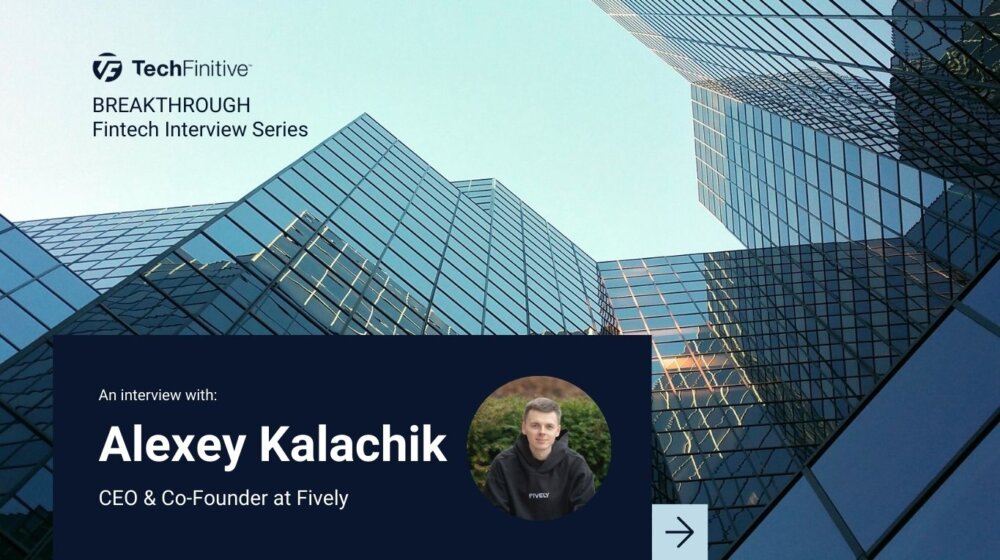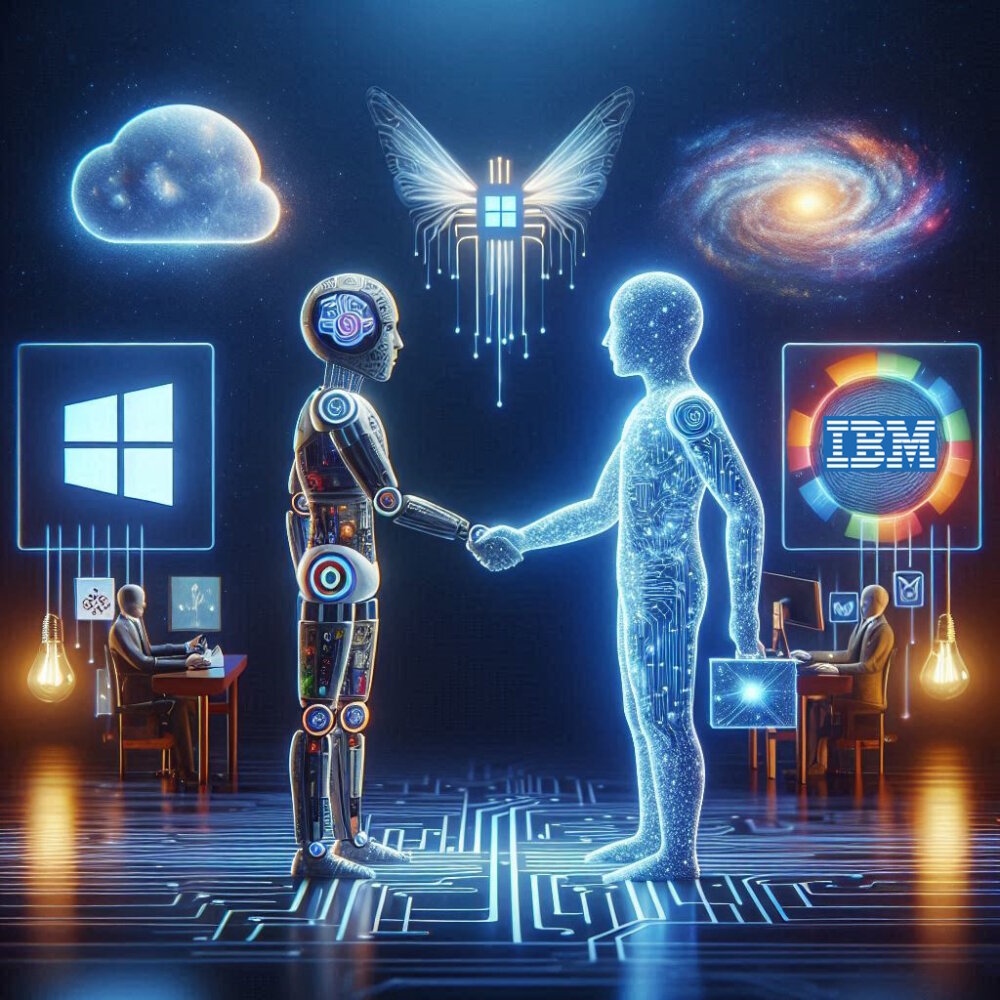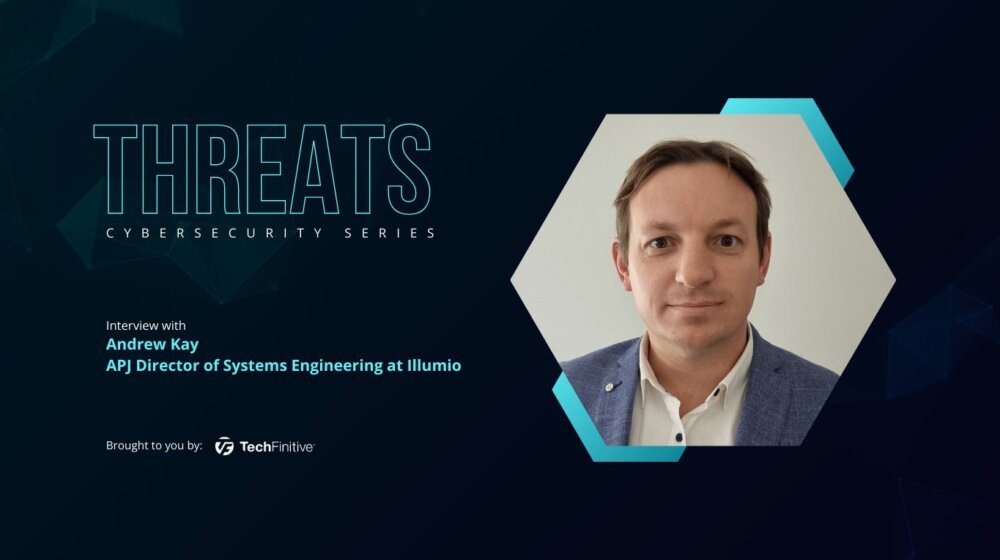
Sharon Harrison, Vice President of Marketing at Ivy.ai: “In marketing, every day is a new opportunity to tell a story”
The battle between AI and humans doesn’t just take place in movies. It’s happening everywhere, and nowhere more so than in the world of marketing. As the VP of Marketing for Ivy.ai, Sharon Harrison sits at this sharpest of edges, so we were fascinated to hear her thoughts on the subject.
To understand why, let’s first explain what Ivy.ai does. To quote the company’s website, it’s “an all-in-one platform to build and launch conversational chatbots. Pre-trained with millions of student utterances and pre-populated with answers extracted from your website.” And it’s trusted by hundreds of universities, hospitals and governments across the USA in particular.
As Sharon details below, 2023 was a big year for the company as it released IvyQuantum, its own chatbot powered by GPT but trained on each organisation’s own resources. This allows “customer service representatives to redirect their efforts toward tackling more complex issues that demand hands-on assistance and the power of human interaction,” she says.
“Striking a balance between these two intelligence realms, human and machine, becomes not just a strategic advantage but an imperative for sustained success,” to quote Sharon’s very last words in our interview.
To find out what else she has to say – including a prediction that influencers may yet be replaced by AI – read on.
Why Dust or Magic? That stems from a quote by legendary American advertising creative director, William Bernbach: “An idea can turn to dust or magic, depending on the talent that rubs against it.” (And if you’re wondering where you’ve heard the name, Bernbach was the inspiration behind Don Draper of Mad Men fame.)
Could you please introduce yourself to our audience? What motivated you to pursue a career in marketing, and how did you embark on your journey in this field?
I’m Sharon Harrison, the VP of Marketing at Ivy.ai.
My journey into marketing wasn’t a path I originally set out on; rather, it was a field I fell into by chance. Fresh out of college, I landed what I fondly call my first “big girl” job at a sports management and marketing company. This was a pivotal moment for me, as the company was stepping into the digital age with their very first corporate website, a project I eagerly took on. This experience marked the beginning of my deep dive into the world of marketing.
Over the next two decades, I found myself immersed in various facets of marketing. My roles spanned a broad spectrum, from shaping visual brand elements to crafting compelling messaging and managing digital marketing assets. This journey wasn’t just confined to corporate branding; it also extended to personal branding for athletes, with my experiences enriching both in the United States and the United Kingdom.
The more recent part of my journey in marketing is with Ivy.ai. This is the outcome of three years as part of the Ivy.ai sales team, including a period of time as the VP of Sales & Partner Success before accepting a promotion to VP of Marketing. Bringing the sales experience and perspective to the marketing role provides me with a unique perspective and underscores our marketing team’s close alignment with our sales team.
Interestingly, I embarked on this career without a formal education in marketing. Instead, my learning has been rooted in real-world experiences. This hands-on approach has proven to be invaluable, providing me with a unique perspective and a rich skill set. I consider myself fortunate to be in a field that allows me to blend my natural communication abilities with my creative instincts.
What are your thoughts on the escalating integration of AI in digital marketing and its potential influence on the future of marketing, Martech and social media?
As with the adoption of any new technology, there are pros and cons. For my team specifically, we currently utilise AI to create efficiency around content generation, proofreading and data review to ensure our messaging is aligned with our target audience.
In order to effectively use AI we maintain tight oversight of the output and continuously work to improve our prompt engineering. For example, we will manually generate an email campaign and then pass it through ChatGPT to refine positioning, and tone, and to check for grammatical errors. What’s critical to note is that we are writing the first draft and not relying on AI to craft a campaign from scratch that could result in misalignment with our brand.
As for the potential influence on the future of marketing, Martech and social media, we are seeing some of this already. Deepfakes and AI-generated influencers are being utilised to avoid influencer fees and to manifest perfection, creating an unattainable standard. Without federal oversight and legislation to establish standard business practices, disclosures, etc, we run the risk of creating a wholly artificial world of idealised representations, rather than authentic brands.
Related reading: AI copyright: should your business be worried?
How do you ready yourself for an AI-driven landscape as a marketing leader? What new skills do you need?
I don’t know if we’ll ever be able to completely prepare ourselves. While AI has been around for half a century, the current post-GPT launch world of AI has resulted in such an explosion of products and rapid evolution of capabilities that it’s not possible to be fully prepared. I think the most valuable asset as a leader – be it in relation to this new AI-driven landscape or in general – is being curious. So be curious about AI and the tools available. Be curious about how to utilise it in all facets of your job. There is truth to the idea that AI won’t replace you in your job, but someone using AI will.
Curiosity is not a new skill, but prompt engineering is. This is a fundamental skill that will now be required learning for our kids and a requirement for job applicants.
Additionally, soft skills, those that can’t be outsourced to AI, will become even more critical to successful leadership, including, and perhaps most importantly, the ability to learn from failure. AI allows us to execute more rapidly, but it does not remove the potential risk of failure. As a leader, it’s our job to create a culture where failure is acceptable IF it is matched with resiliency and curiosity. Why did “XYZ” project fail? What could we do differently next time?
How do you think AI might evolve B2B marketing and/or ABM strategies in 2024?
Predicting specific trends with certainty is definitely challenging, but there are a couple of ongoing developments that are sure to continue to shape the industry as well as look ahead to 2024.
Personalisation at scale: Delivering content/messaging that is highly tuned to the individual audience or a specific audience segment will only become more popular in the coming years. This allows marketers and advertisers alike to heighten engagement, enhance conversion rates, and foster an overall consistent and positive user experience.
AI-generated influencers/brand ambassadors: Unlike human influencers who may face schedule constraints or personal challenges, AI-generated influencers offer consistency in content creation and engagement. They can maintain a continuous online presence without the limitations associated with real-life influencers, be tailored to a specific audience, and adapt their messaging based on real-time data.
Both of these trends represent a shift toward the more individualised and dynamic approaches we are already seeing in the rapidly evolving landscape of digital advertising. Personalisation is the name of the game – it’s what customers are looking for and businesses need to deliver.
Could you share some of your most noteworthy accomplishments that you take particular pride in?
The absolute first accomplishment that comes to mind is on a personal level and that is the privilege I’ve had in raising five incredible daughters. It is as challenging as it is rewarding at times, but guiding them through life’s ups and downs has been a source of immeasurable joy.
On the professional side of things, I am immensely proud of my team at Ivy.ai for the launch of IvyQuantum. To quote our press release, “IvyQuantum is the first chatbot powered by GPT to utilise the organisation’s specific knowledge sources – web properties, PDFs, spreadsheets and more – in order to solve GPT hallucinations while ensuring there are accurate, consistent resources available to customers all hours of the day, every day of the year.”
This launch marked a giant leap forward for Ivy and our customers. The challenges we faced in the process have been opportunities for growth, learning and the evolution of self – both in business and life.
Lastly, I will be forever proud of the marketing team we’ve built at Ivy.ai. We are small but mighty, and most importantly cohesive. We’ve stuck to our list of priorities for what we felt would be the most impactful to the culture and business overall, which has resulted in doubled lead volume YoY. A significant part of creating this culture is ensuring everyone feels welcome and that people have a place where they can bring their true selves. This includes bringing all the experience you’ve had personally and professionally, as well as some amount of vulnerability, which is encouraged at Ivy, and ultimately led to business growth and employee satisfaction.
Related reading: What will the digital landscape look like in 2028?
What core values have played a pivotal role in shaping your approach to marketing and communication?
In marketing, every day is a new opportunity to tell a story, to connect and to engage with diverse audiences. It’s this dynamic and creative aspect of marketing that continuously fuels my passion for the field.
Several core values play a pivotal role in how I approach marketing and communication. The following are a few key mantras that have guided me throughout my career and allowed me to build strong relationships, resiliency and success – not only with my own internal teams but also with the customers we serve.
Listen more than you talk. In order to communicate effectively, you have to hear what your target audience is talking and asking about. You need to hear what your sales team has to say and understand what your product team is working on. You need to hear the challenges customers are facing. Everyone’s opinion is valued, and it’s the listening that brings results.
Don’t just identify problems; find solutions. In today’s dynamic marketing landscape, proactivity is key. Embracing a problem-solving mindset and encouraging teams to explore creative avenues and implement effective strategies are the stepping stones toward success. Identifying the problem is only the first step; finding the solution is what facilitates innovation, growth and lasting success.
Fail. But then adjust and try again. Failure is not a roadblock, but a pivot point for growth. We’ve all heard Albert Einstein’s quote that “the definition of insanity is doing the same thing over and over, but expecting different results”. In marketing and business as a whole, the power is not in the failure itself but in the resilience to try again and adapt your strategies in response to said failure, armed with the insights gained from previous experience.
What major hurdles have you encountered as a marketing leader, and how did you surmount them?
Without formal marketing education, I’ve had a steeper learning curve for implementing ideas and tracking the outcome. Data and analytics were never my strong suit – I’ve always prided myself on being the “idea” person. So the first step was for me to acknowledge this part of myself and work to improve my skills in that area. The other part of the solution was to add a team member who excels in and enjoys digging into the data to determine our successes and shortcomings in order to better inform our overall marketing strategy.
Another major hurdle was untangling all of the marketing efforts that were undertaken prior to my team stepping in. The basics of our brand identity needed to be updated and refined. We truly needed to start from scratch, which, as you can imagine, is a mammoth undertaking. However, we are fortunate to have a great marketing team and support from the entire Ivy organisation. This has allowed us to revamp everything over the last 18 months and are seeing a major return on the investment in terms of the volume and quality of leads generated for our sales team.
Do you anticipate any significant disruptions in marketing and sales technology for 2024? If so, what?
Sales and marketing is an ever-evolving landscape. In 2024, companies will see disruption as they attempt to balance the delicate equilibrium between data-informed AI and nuanced human intelligence. The ability to emotionally connect with potential clients remains a valuable asset in the marketing and sales world. But, simultaneously, the efficiency and scalability derived from using AI create a strong counterpoint and business case for leveraging the technology in customer interactions.
As businesses continue to explore AI and incorporate the tech into everyday business practices, the potential for increased productivity and overall job satisfaction becomes a transformative force. One of the most important benefits lies in AI’s capacity to automate repetitive and time-consuming tasks, freeing up employees to focus on more complex and strategic aspects of their roles. However, equally important is the personalisation that comes from the human touch.
At Ivy, as I mentioned earlier, our chatbots are powered by GPT to utilise the organisation’s specific knowledge sources whatever the time of day or day of the year. For example, in customer service, where inquiries may come in various forms, Ivy’s AI-generated chatbots enable the automation of routine queries, allowing customer service representatives to redirect their efforts toward tackling more complex issues that demand hands-on assistance and the power of human interaction.
Striking a balance between these two intelligence realms, human and machine, becomes not just a strategic advantage but an imperative for sustained success.
NEXT UP

Alexey Kalachik, CEO & Co-Founder at Fively: “The potential for digitalisation within insurance is enormous”
We interview serial entrepreneur Alexey Kalachik, CEO & Co-Founder at Fively, on the future of fintech and what makes this space so exciting for startups.

IBM bolsters AI push with Microsoft Copilot launch
In a bid to boost its AI offering, IBM Consulting will enable enterprises to create and manage AI copilots – including Copilot for Microsoft 365

Andrew Kay, Director of Systems Engineering APJ at Illumio: “The most worrying development with ransomware is that it has evolved from simply stealing data to impacting IT availability”
Andrew Kay, Director of Systems Engineering APJ at Illumio, has 20 years’ experience helping organisations strengthen their cyber resilience. We interview him as part of our Threats series on cybersecurity.